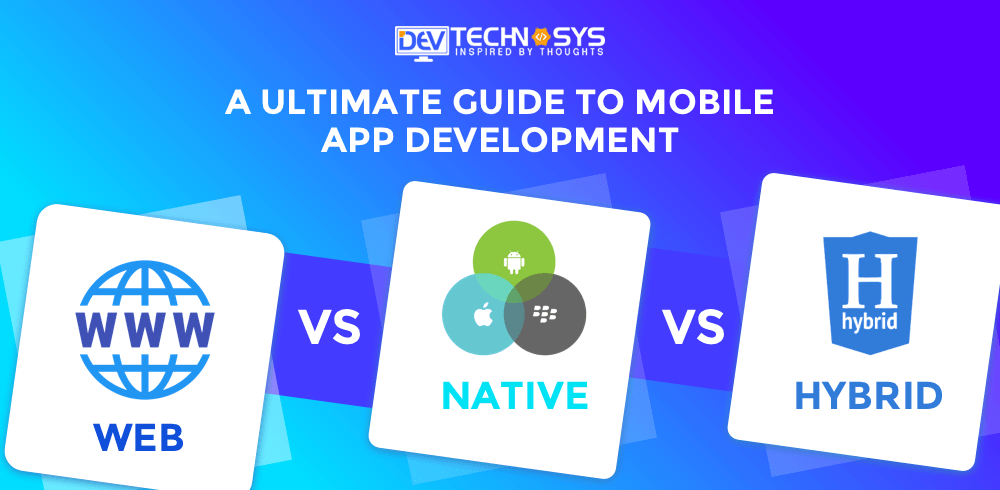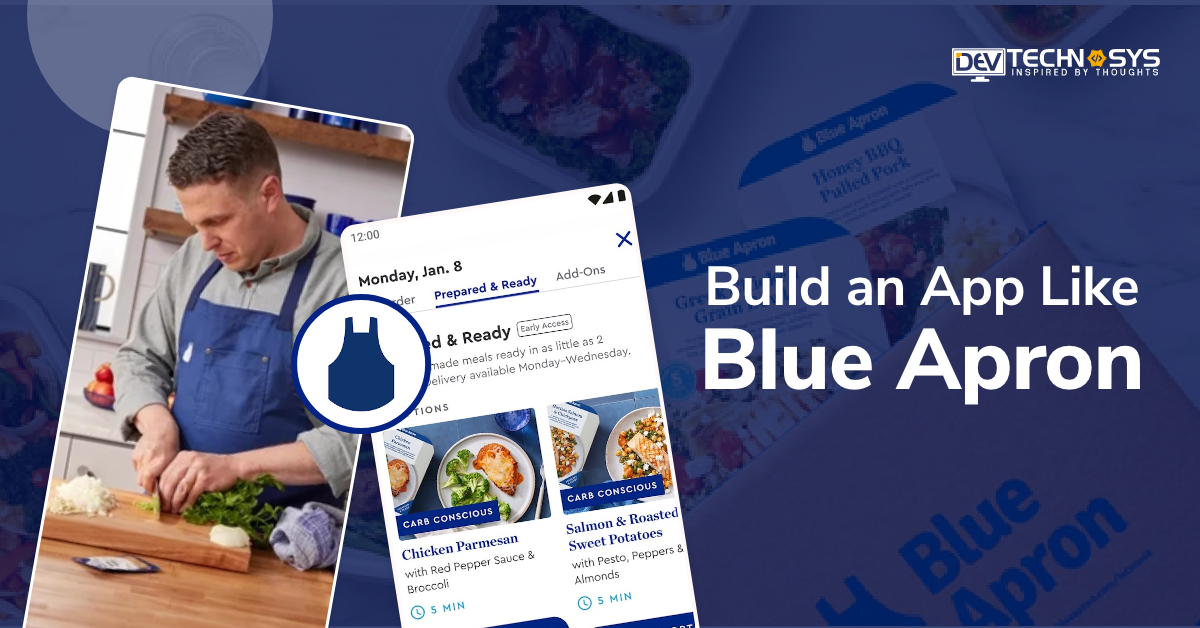Mobile and web application development has dominated the entire industry. Right from ordering food online, cab services, courier services, shopping, business association and everything else can easily be done over mobile devices. Prior to starting any business the first opportunity grabbed by the entrepreneurs to look for mobile app development products. Mobile applications are considered as the dynamic and most relevant business tools. They have also become the latest standard in order to develop connections with potential customers. However, the application development projects do not only refer to the software products but it also involves the services related to banking, goods delivery and so on.
Mobile applications also enabled the business platforms to provide an interactive interface to the users along with delivering an up-to-date experience. It is the golden rule in business that a constant innovation-driven strategy is really fruitful. Each variant in application development has its own advantages and disadvantages along with that all of them are equally progressing. But how would you conclude the solution which can work best for you? Let us follow through this article and learn about each one of them in detail.
Table of Contents
Crucial factors to consider prior to the app development process
If the application fails under any circumstances to perform with excellence or take too much time to load then the users will not hesitate to neglect the product or uninstall the application. It is an obvious outcome of the inefficient or poor performance of the application which discourages the users not to use the application again.
Hence, depending upon business objective and customer reach, you have to target the application development option. You can either choose between native or cross platform app development in order to meet your business objectives. However, before opting for any framework it is better to consider some of the essential factors which play a key role in the acknowledgment of the application.
- Pace- The running speed of any application is worth considering prior to choosing the framework. If it is the only consideration then the native application is the winner over web and hybrid.
- Platforms- The platforms required in building the applications are much needed to determine the success of the app. For instance, native applications are developed for particular operating systems as Swift or Objective C for iOS and Java for Android. Similarly, hybrid applications have the utility of native or web application development.
- Code portability- The code portability of web and native applications are limited for platforms. However, cross-platform applications can be developed with the specification of code portability for multiple platforms.
- User interface- In order to build an application, the user interface is again a determining factor. For hybrid applications, developers can consider iPhone as well as Android guidelines in order to satisfy the requirement of both instances. However, it doesn’t align well with native or web apps.
Web application development
Web applications are accessible with a web browser over the internet. The difference between website and web applications is subjective where the website is just informational but web applications also offer an interactive interface and additional functions. For example, Facebook refers to a web application which is interactive, on the other hand, Wikipedia refers to the website which is just informational. Web application development is specific and web applications can easily load on browsers like Chrome, Firefox, Safari and so on.
How web applications are built?
A large number of web applications are developed using CSS, JavaScript or HTML5 framework. Unlike mobile application development, it has no specific software development kit to assist the developers. Web apps require the template and frameworks for its development including React, Angular, Vue.js for a quick start.
Web application development is also a quick and simple process which is also a reliable way to test out if the investment in the application is worth or not. However, if the web application is extremely simple and designed for specific mobile users only then you may miss the revenue outcomes and mobile traffic.
Progressive web applications
Earlier web applications did not possess the functions of native, for instance, the ability to transfer notifications, load on the home screen, offline mode and so on. With the progression of custom mobile application development, few improvisations have been done in web applications and browsers to offer essential features. applications which can leverage all those benefits are known as progressive web applications.
Mobile applications
In general mobile applications refer to the apps which download from Google Play Store or Apple store. mobile app development is categorized as native and hybrid. We will go through both of the app development segments but first, let us understand the utility of mobile applications.
Is there a need to build mobile applications over web applications?
It can be the most obvious question considering the application development requirements and its simplest answer is that the presence of an application is extremely important for an online business. Your potential customers or users might be searching for the latest launch of products and if you want to grab the opportunities of showcasing your services and it is better to have a reliable mobile application. Having an application on the app store can easily encourage your potential customers to download the app and use it further. Some of its additional functions include-
- Push notifications- Let’s say it is easy to bring users to your product or services for the first time but the harder task is if they return back. Hence, push notifications are a sweet reminder for the users depicting the function of mobile applications. Only mobile applications offer you an opportunity to timely send the push notifications in order to re-engage the users.
- Sharing features- The unbeatable aspect to grow the application is if the people can share its content or features with their friends and relatives. It can also be done through a web application but mobile applications can run the functions smoothly. For a mobile app, it is convenient as well as quick to share the application on their device using email, Facebook, WhatsApp, Instagram, Messenger and so on.
- The time within an application- It is justified that the users spend maximum time on mobile applications as compared to the web applications. Also, research highlights the fact that in the year 2018 the mobile users spend more than 85% of their time on mobile applications which were just 50% in the year 2016. The popularity of mobile applications has increased enormously because of its convenient interface.
- Additional revenue- The mobile app development has additional advantages over the web application and one of the significant benefits is advertising revenue. Mobile apps in hence the monetization techniques of the application also the CPM advertisement for mobile applications is maximum then the web applications.
Native application
Native app or native application refers to a software application developed in a particular programming language for the platform-oriented framework. The native app development in iOS is developed in Objective C, Swift and in Android, it is written in Java. The web applications are written in JavaScript but unlike it, native applications are developed in languages which the platform can easily access. This includes objective C and Swift which is used in native app development and Java for Android applications. C#, on the contrary, is used to write applications for Windows phones.
Native applications are the most common form of mobile app development. Key aspects of native app development are-
- Faster and responsive for specific platforms.
- Applications are highly interactive and intuitive.
- Allow the developers to easily access full features.
- The Internet is not always required.
- Minimally used hardware and provide efficient experience in coding.
Advantages of native applications
- Responsiveness- Native applications are faster and most reliable for the users. But the advantages are not limited to it, rather it also provides a responsive experience to its potential users. This is an obvious advantage which is not in favor of the web application.
- Easy to tap- Native applications make the function of tapping into the camera, compass, microphone, accelerometer, swipe gestures, and other similar functions extremely easy. Using the other options, it is still doable but native applications make it easy to tap on the wide function available on the devices.
- UI/UX platform convention- The native app development businesses can easily please their potential uses in order to match them up with the application’s user interface for platform convention. There are plenty of UI differences which enable the user to feel convenient. Considering the native applications, they do not compromise the interface for the users and make it user friendly for multiple platforms.
Disadvantages of native applications
- Multiple codebases- Native applications do not work on a similar codebase. Like, Android applications will not run on the iOS platform and vice versa. Hence, the developer team will have to work with multiple code bases for specific platforms.
- They cost more– Native applications are much costlier as compared to hybrid app development. It is seen that most of the developers are the specialists of one platform like Android or iOS and if your application requires two different teams then you might have to invest more time and money into the project.
Hybrid applications
The hybrid app development just like web applications are developed using HTML, JavaScript or CSS but they run into a WebView which is basically a browser in your application. Hybrid application development or cross-platform app development refers to the amalgamation of native applications and web applications. They are also developed in JavaScript, HTML5 or CSS and they are run in WebView. The overall development process of hybrid applications is cheaper as compared to other solutions and it also has access to the API of the device which gives easy access to the camera and storage. Hybrid applications are not faster than the native ones but they represent a good solution for MVP which can be created in a short time period.
Let us go through the key aspects of hybrid app development-
- A single code base makes it easy and faster.
- Provide efficient cross-platform support.
- Convenient and cost-effective to develop applications.
- The applications can be easily launched in the stores.
- Provide quick updates.
- It can also work offline.
Why is there a need to consider hybrid development?
The debate between hybrid and native app development is extremely complicated and even if there are lots and lots of advantages of the Native framework, the hybrid is also significant. Let us have a look at both of them.
“Imagine if you have a mobile app development idea but not sure if the users will prefer it. Also, your objective is to present something useful to the users but you have limited resources and using all of them you have to create a simpler version of your application idea containing its value.”
In the world of startups or beginners, it is known as the Minimum Viable Product or MVP. Developing a web application can be a really minimal solution, however, it will not allow you to test if the user will download the application on their device or not. The hybrid application is a solution to the issue.
Advantages of hybrid app development
- Single codebase– All the benefits of hybrid app development solely stem from the fact that other than building two different applications, developers can build anyone and then easily tweak to an extent in order to make it work for both the platforms. With the help of hybrid applications, there is a requirement to build only one codebase and then manage it accordingly for multiple applications.
- Saving time and money- It only requires building one codebase which will consume half of the time than regular. Or you can also say that with the availability of similar resources developers can easily complete the development of hybrid applications in half time. The Cherry on the top is that this solution is less expensive than the others.
- Easy scalability- As compared to native applications, hybrid apps are much easier to scale. Once it is built for a platform then you can easily launch it to another just like a Windows mobile app.
- Access to the features of devices- It is just like react-native applications, hybrid Applications allows other developers to retain similar abilities in order to access the features of the devices.
Disadvantages of hybrid app development
- Performance- The biggest drawback of the hybrid application is its performance. This application can load in a WebView or browser-like component. They are just good for the WebView. WebView is also responsible for displaying the user interface and running JavaScript. This is a limitation in hybrid application performance.
- Costly: The cross-platform app development gets tough as It requires substantial work in order to make sure that hybrid applications form appropriately on every platform. In some situations, it can even become costly.
Variants of the applications
Some of the most popular applications like Pokemon go or Twitter is native applications. Similarly, PhoneGap represents an example of hybrid application development. There are multiple platforms which allow cross-platform application development with the help of react native, Xamarin or titanium.
All of them are worth having a look at.
1) Xamarin: It is developed by Microsoft and offers an advantage to developers through they can easily build one application which can work across multiple platforms using the C# framework. Xamarin offers reliable tools to build, test and distribute the application into multiple segments. It also provides prebuilt applications so that the developers can get a quick start on their application.
2) React Native: In the year 2015, Facebook launched a reliable open-source project known as React Native for its own purpose. Eventually, it became highly popular because of its developer-friendly approach and using the same codebase it can also deal with native Android and iOS applications. Framework developers can easily build mobile applications having indistinguishable frameworks.
Read the blog- Native Vs Hybrid Vs Web Application
In order to put it all together, developers can also utilize React or JavaScript. React-native does not offer complete access to the device conference but still, developers can wear The functioning of native code if they require.
3) Titanium: The latest version of titanium is quite similar to the react-native framework in which applications can be developed and written in JavaScript but produce only a native application. It can also bridge the native API JavaScript framework with its own set of APIs.
Importance of the application performance for your business aim
The key driver towards the success of the application is its performance and reliability. At present, it has a difficult task to gain user attention that too over mobile devices. Also, the application store has thousands of competitors trying to provide similar solutions. Either reason for which users abandon any application is that “they are incompatible or they lost interest”.
Consider a situation where a user is using an m-commerce application and has uninstalled the application because he may be expecting a seamless shopping experience but the application asks for a lengthy registration or interaction process. The poor performance of the application can become your end game in mobile application development. The most significant pick out in the success of an application is its performance. It is still debatable among web, mobile, and hybrid applications that which one is highly performance-oriented.
Why choose web application development?
Web applications are comparatively easy to develop because they require a single codebase and it can run through multiple mobile platforms. It is significant that if the web applications can run in a specific web browser then they can be built for multiple platforms. When compared to native for hybrid applications, web applications have the least expensive upfront and they do not stick to a standard operating system protocol.
The application framework does not essentially require approval from the application marketplace and can be released at any time under any format. The best advantage of web applications is that their updates do not go through the application store which means that users do not have to update it regularly.
Why choose native app development?
Native applications are extremely easy to load the digital content, visual elements and structure along with providing a seamless experience to the user simultaneously. If you are looking for a high-speed solution through an application then it is advised to choose a native application framework. Native applications are also developed for specific operating systems and they can provide outstanding performance. With the latest modifications now, it can also render trendy content and enable the user to connect immediately. The native application makes it easy to access the native features which are quite difficult for hybrid applications. Whenever the user opens the web app the latest version of the application loads instantly.
Why choose hybrid app development?
Hybrid applications or cross platform app development can be a bit slower than the native but it is best if you are targeting to develop professional business applications. The professional service applications do not essentially require efficient graphical or platform-specific assistance. Hence, it will not affect much of your expectations and will also ensure seamless interaction.
The hybrid application development platform is agnostic which makes it appealing as compared to native. With this framework, developers can build an application and then release it across multiple platforms. Also, it doesn’t require regular maintenance with its different bases signifying that it is quite easy to build and requires less time to market.
What to look for in web, native or platform application?
The testing prospects or parameters for web applications are quite different from native and hybrid applications. Let us understand each one of them specifically.
Web applications testing
- User interface testing- Testing for the UI elements of different resolution and screen size.
- Data consumption- Checking if the applications are consuming more data getting transferred from the server.
- Application performance- The memory allocation differs from mobile devices and Systems, hence it is important to check for the application for the app performance.
- Connectivity issues- Sometimes applications can face a variety of issues while switching from public networks to cellular networks. Hence network connectivity checking has to be done.
Hybrid or native application testing
The actual difference between both the applications is quite different but at the same time, they also have similarities in their function to main. So using the same approach they can be tested.
1) Functional testing
It involves below-mentioned features-
- Application’s built-in resources
- Battery and memory consumption
- Testing the application while push notification, call or message
- Install or uninstall testing
- Screen orientation and gesture
2) Compatibility testing- It involves application testing across multiple devices.
3) Connectivity testing
This includes-
- Testing when the application is following multiple connections.
- Testing while switching between the connections.
- Testing when the application is offline
And at last, performance testing is done for the applications.
Conclusion
If you require the applications with complete functionality, performance, and security, the application is your best option. Applications having advanced features like finances or e-commerce work absolutely well if they are developed with the native approach. However, if you are looking for an application which you need to require frequently for blogging then you can prefer hybrid application development. They are also preferable because having the low cost and investment options they offer fast development time.
























